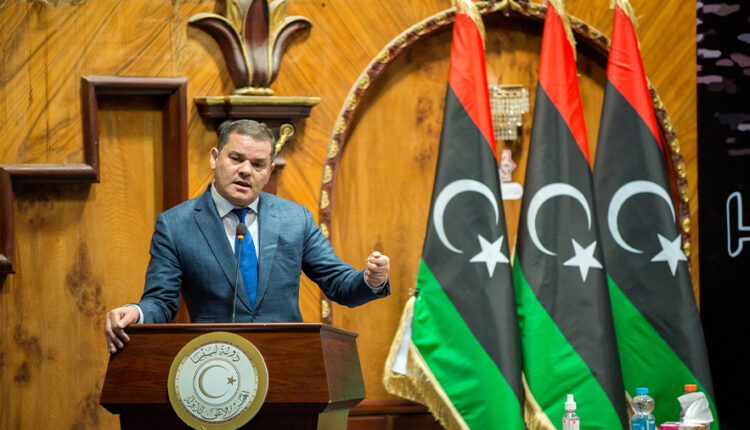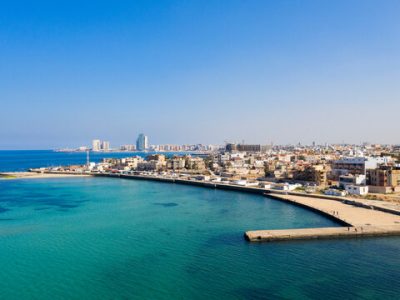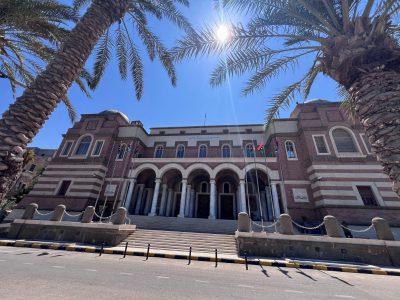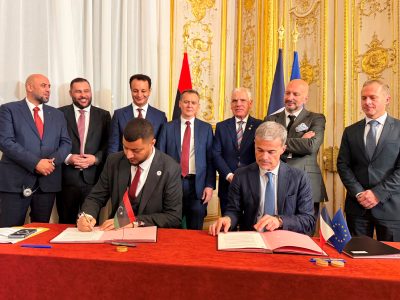Libya National Budget Crisis: Oil Wealth at Risk
Libya’s national budget crisis has emerged as a major threat to the country’s stability and development. Despite significant oil revenues, the absence of a unified national budget is deepening deficits, undermining investment, and fueling political disunity. Unless Libya’s leaders resolve the fiscal deadlock, the country’s economic future hangs in the balance.
Libya’s vast oil wealth has long promised a path toward prosperity, but without a functioning national budget, that promise risks slipping further out of reach. While crude continues to flow and money enters the system, the nation remains trapped in a damaging cycle of disunity and uncertainty. At the heart of the crisis is a prolonged failure to agree on a unified national budget – an impasse that has turned state spending into a contest between rival administrations, rather than a tool for national development. The consequences are no longer abstract. In 2024, Libya’s fractured fiscal landscape saw expenditures far outpace income, draining reserves and overwhelming oversight. By April 2025, the Central Bank was forced to devalue the dinar by 13 percent, citing the deepening dysfunction. As spending accelerates without coordination or accountability, the risk is pointing towards structural instability.
The roots of the impasse lie in the political fragmentation since 2011. Today, two administrations vie for power – the GNU in the west and GNS in the east. Each issues its own budgets and taps state funds. For example, in April 2023 the eastern parliament approved a LYD90 billion budget for the Hammad government, while the Tripoli government pursued its own spending, relying on central bank releases. The governor of the central bank, Sadiq al-Kabir, publicly chastised this parallel spending, demanding an end to “spending from unknown sources”. He even asked, “From where will the government provide funding for (promised salary) increases?”, a poignant question that exposes the impasse. In essence, one side claims legitimacy from the old parliament and House of Representatives, the other from the UN process – and the budget remains the victim.
Throughout 2024 the competing budgets only multiplied the crisis. On July 10, the Benghazi parliament voted to approve an additional LYD88 billion in expenditures, piling onto the earlier LYD90 billion plan. In total the east‑side authorities spent roughly LYD178 billion in 2024 on salaries, fuel swaps and local projects. Tripoli’s government denounced these unilateral appropriations as illegal and refused to collaborate. Even the CBL tried to find a way out: in a rare meeting, Governor Kabir and Parliament Speaker Saleh even discussed steps to adopt a 2024 unified budget. But no agreement resulted. (UN deputies had warned that without unity, Libya risked relapsing into old divisions). By late 2024 both sides were effectively running ad-hoc budgets, each expanding spending on subsidies and salaries without a common fiscal frame.
International institutions have repeatedly sounded the alarm. Even in early 2025 Libya’s UN mission called on authorities to adopt a transparent and fair unified budget as a foundation for stability. Shortly thereafter the Central Bank announced it would engage with relevant parties to approve a unified budget for 2025. The IMF then reported that Libya had swung from a fiscal surplus in 2023 to a deep deficit in 2024 as the deadlock spawned unsustainable spending. Its Executive Board urged authorities to remain steadfast in agreeing a unified budget to set spending priorities and restore fiscal credibility. Fund staff note that without a budget, the government is tempted to finance costly new wage and subsidy commitments whenever an oil windfall appears. In short, the experts warn the only solution is political compromise; otherwise Libya’s coffers will keep draining into competing projects and parallel schemes.
The absence of a unified budget also paralyzes public investment. The World Bank observes that years of conflict have left Libya with insufficient public investment and infrastructure maintenance. The 2024 figures illustrate the point: total public spending edged up, but capital expenditures plunged by 78% as roads, hospitals and schools remained unfunded. In fact, at year’s end the Tripoli government simply froze LYD21 billion of unspent development funds into a reserve for future projects, essentially shelving planned infrastructure. Libya remains almost entirely dependent on oil: in 2023 the oil and gas sector represented 60% of GDP and 97% of government revenues. In practice, this means that without a unified budget virtually all government functions (outside oil) grind to a halt. Investors and businesses, already deterred by political risk, see little incentive to commit under such chronic uncertainty.
This crisis is especially baffling Libya’s vast oil wealth. Oil exports still fill the treasury when production flows. By mid‑2025 Libya had already collected over LYD51 billion in crude revenue in just six months. But in 2024 both violence and market swings caused oil receipts to fall 23% to about LYD76.7 billion, even before overspending. The paradox is that, with no agreed budget, every dinar is in effect spent twice over, on competing projects in different regions, rather than advancing a unified development plan. Analyses make clear that Libya still needs to channel its oil gains into schools, clinics, roads and jobs. Instead, with two budgets each dinar turns into a prize for whichever faction happens to control the funds, undercutting national cohesion.
For Libyans, the lesson is clear. The budget stalemate is not merely a procedural delay. It is a failure of governance with concrete costs. Analysts warn that continued dual spending will only deepen deficits, deprive the economy of needed investment, and further weaken the dinar. By contrast, a single consolidated budget – negotiated through genuine political compromise – would allow Libya to set clear spending priorities and restore confidence. The UN, IMF and World Bank have repeatedly emphasized this urgent need. They stress that without unity Libya risks slipping back into fragmentation and decline.
Ultimately, Libya’s leaders and institutions must recognize that no oil boom or foreign aid can replace the clarity of sound public finance. Passing a unified budget should be treated as a national emergency. It feels that right now, it is treated as nothing more than optional reform. Libya’s citizens deserve better stewardship of their nation’s wealth. The budget conflict is cutting off critical projects – from roads and hospitals to reliable water and power – while political rivals bicker. Every month of delay bleeds resources and momentum. Libya’s future cannot wait: a national budget is the very foundation of statehood.
As Libya’s leading economist Ali Mansour al-Salah warns, duplicate budgets effectively inflate costs, causing spending to surpass GDP, deepening deficits and inflation. Each month without unity forfeits more of Libya’s potential. Passing a unified budget by year’s end must be seen as urgent statecraft – a test of whether leaders truly serve the national interest or narrow factions. Anything less will be judged harshly by history.




